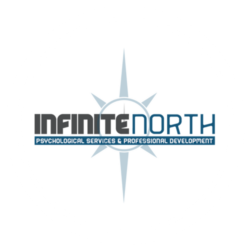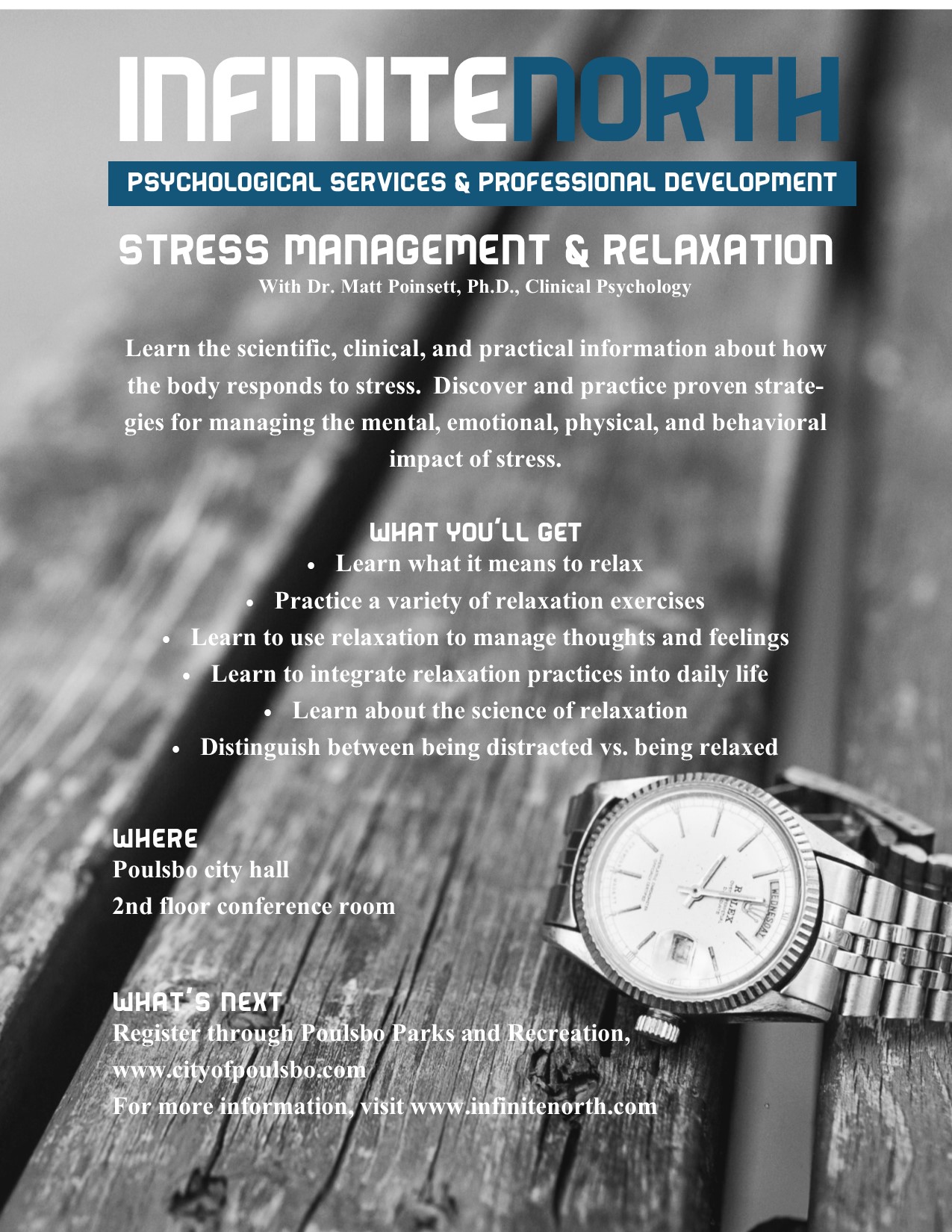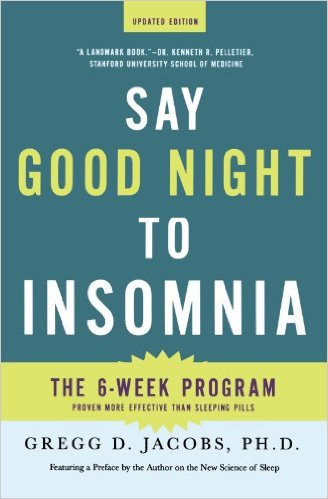As I’ve developed as a clinician, I’ve slowly molded my view of mental well-being into what it is today. My perspective has shifted, expanded, conformed, stretched, and reformed. Preventative mental health care has become increasingly important. Diagnosis is not a prerequisite of well-being. No one has to wait until after a heart attack to initiate an exercise plan. No one demands that you only see a medical doctor when you’re ill. In fact, regular check-ups are encouraged. I’d like to see mental health head in the same direction. One of the ways I’ve decided to move toward preventative intervention is by offering a stress management and relaxation workshop in my community. If you’re local, you can register here
The three hour workshop will introduce a variety of relaxation and stress management techniques for those occasionally (or frequently) overwhelmed with significant transitions, work responsibilities, family obligations, or life’s less specific burdens. By developing a greater understanding of the emotional, mental, physiological, and behavior components of stress, strategies for managing it become much more accessible. Signing up allows you to join a small group (eight or less) engaging in practical exercises and discussions aimed at cultivating a bit more peace in your life.
Choose any one of the four workshops offered and if you find it useful, feel free to up again to repeat the course. You can join us in Poulsbo City Hall on:
Saturday April 23rd, 2016 from 9:30am to 12:30pm
Saturday May 7th, 2016 from 9:30am to 12:30pm
Saturday June 18th, 2016 from 9:30am to 12:30pm
Saturday August 20th, 2016 from 9:30am to 12:30pm
If you’d like to have this workshop tailored for staff training or as part of an employee wellness plan, contact me directly to discuss details.




